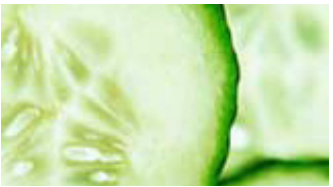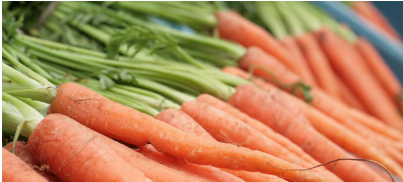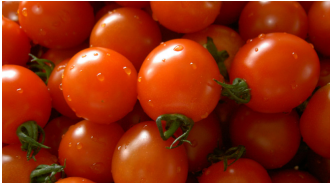
Crops That Grow Best In Cool Weather
Artichokes, Jerusalem
Arugula
Asparagus
Beans, broad (fava)
Beets
Broccoli
Brussels sprouts
Cabbage (including Chinese)
Carrots
Cauliflower
Celery
Chicory
Collards*
Endive
Kale
Kohlrabi
Leeks
Lettuce
Mustard greens
Onions
Parsnips
Peas
Potatoes
Radicchio
Radishes
Rhubarb
Rutabagas
Swiss chard*
Shallots
Spinach
Turnips
Most Space-Consuming
Artichoke (globe)
Broccoli
Cauliflower
Corn
Cucumbers
Melons
Peas
Potatoes
Sweet potatoes
Winter squash
Heavy Feeders
Artichokes
Broccoli
Brussels sprouts
Cabbage
Cauliflower
Celery
Collards
Corn
Cucumbers
Eggplant
Kale
Lettuce
Melons (including watermelon)
Mustard
Okra
Peppers
Parsley
Pumpkins
Rhubarb
Spinach
Squash
Sunflowers
Swiss chard
Tomatoes
Light Feeders
Beans
Beets
Carrots
Chicory
Endive
Leeks
Parsnips
Peas
Potatoes
Radishes
Rutabagas
Shallots
Sweet potatoes
Turnips

Short-Season Crops
Arugula
Beans (bush)
Beets
Cabbage, early (including Chinese)
Carrots
Lettuce
Mustard greens
Onions (from sets)
Peas
Radishes
Scallions
Turnips
Crops That Grow Best In Warm Weather
Artichokes, globe
Beans (except fava)
Corn
Cowpeas (black-eyed peas)
Cucumbers
Eggplant
Lima beans
Melons
Okra
Peppers
Pumpkins
Soybeans
Spinach, New Zealand
Squash, summer and winter
Sweet potatoes
Tomatoes
Transplants
Tomatoes
Peppers
Eggplant
Broccoli
Leeks
Cabbage
Cauliflower
Sweet potatoes
Brussels sprouts
Okra
Crops That Withstand Early Fall Frosts
Beets
Brussels sprouts
Cabbages
Carrots
Cauliflower
Collards
Endive
Jerusalem artichokes
Lettuce
Mustard
Parsley
Peas
Radishes
Rutabagas
Spinach
Swiss chard
Tuber/Bulb/Root
Potato
Garlic
Onions
Jerusalem artichoke
Horseradish
Asparagus
Rhubarb

Long-Season Crops
Artichokes
Asparagus
Beans (pole, dry, lima, and soy)
Celery
Eggplant
Kale
Leeks
Onions
Peppers
Potatoes
Rhubarb
Tomatoes
Least Space-Consuming
Beans (bush and pole)
Beets
Carrots
Chinese cabbage
Eggplant
Leeks
Lettuce
Mustard greens
Onions
Parsnips
Peppers
Radishes
Sunflowers
Swiss chard
Tomatoes
Turnips

By Dawn Pettinelli, Associate Extension Educator, PSLA, 2014
Questions? Contact:
UConn Soil Nutrient Analysis Laboratory
Department of Plant Science and Landscape Architecture
Phone: 860.486.4274
Email: soiltest@uconn.edu
Website: soiltesting.cahnr.uconn.edu
UConn is an equal opportunity program provider and employer.
©UConn Extension. All rights reserved.